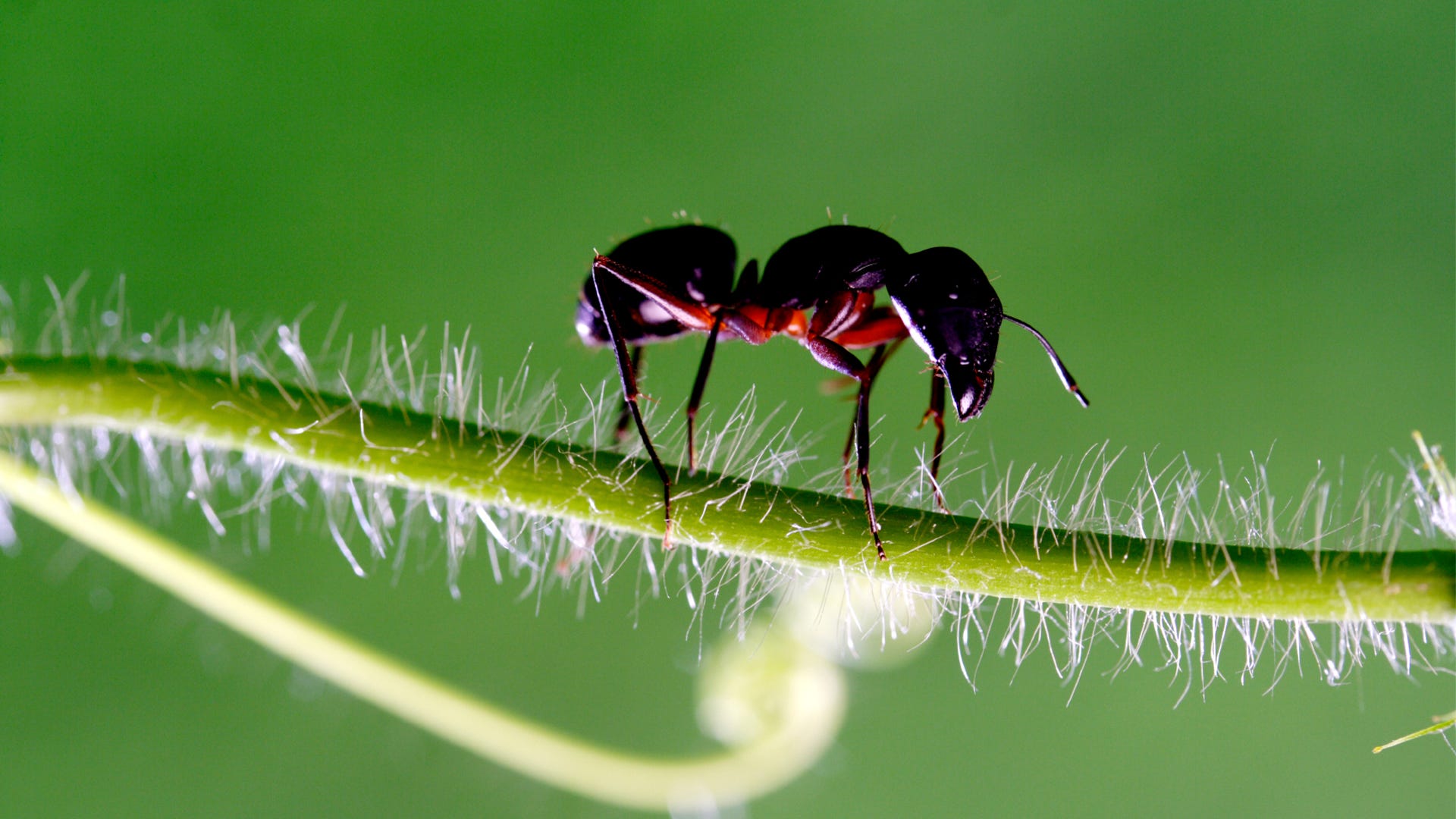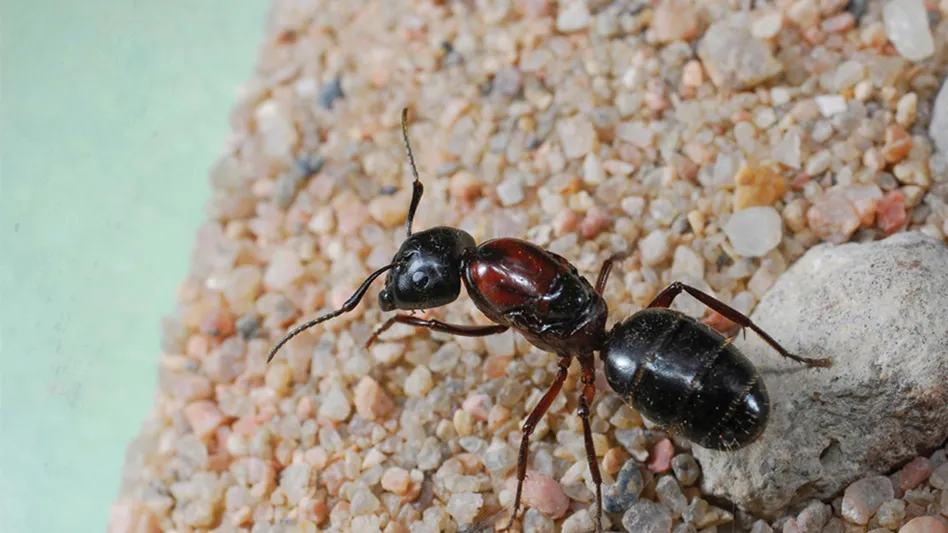Advanced Termite Control: Proven Approaches for Eliminating Termite Infestations
Advanced Termite Control: Proven Approaches for Eliminating Termite Infestations
Blog Article
Ecological Effect of Pest Control: Harmonizing Effectiveness With Sustainability
The environmental influence of bug control is an essential concern that needs a delicate balance between attaining efficiency in ensuring and managing bugs sustainability of our environments. As we strive to protect our crops, homes, and wellness from the threats presented by pests, the methods we employ can inadvertently harm the setting. From making use of damaging chemicals that seep right into our soil and water to the unplanned effects on non-target types, the effects of standard insect control techniques are far-ranging. Nevertheless, there are arising techniques that supply hope for a more sustainable approach to pest administration. These solutions not only goal to address the instant parasite problems but likewise take into consideration the long-term health and wellness of our earth.
Harmful Chemicals in Pest Control
The usage of harmful chemicals in insect control presents considerable environmental and health and wellness dangers that call for cautious consideration and mitigation strategies. Herbicides, pesticides, and insecticides are generally made use of to get rid of insects, yet their widespread application can bring about unplanned repercussions. These chemicals can pollute dirt, water sources, and the air, affecting not only the targeted bugs yet likewise helpful insects, wild animals, and people.

To address these risks, incorporated insect monitoring (IPM) methods are being promoted as a more sustainable option. IPM includes a combination of methods such as biological control, environment manipulation, and the targeted use of chemicals as a last option (ant control cherryville nc). By taking on an alternative method to pest control, we can minimize the environmental and wellness effects associated with hazardous chemicals while effectively managing pest populations
Influence on Non-Target Types
Considering the unplanned repercussions of insect control techniques, the influence on non-target varieties is an important aspect that calls for thorough analysis. While bug control measures intend to target specific bugs, other organisms in the ecological community may be inadvertently impacted. Non-target varieties, including beneficial pests, birds, mammals, and also plants, can suffer indirect or direct injury from pesticide applications or organic control methods.
Pesticides made to combat a certain bug parasite might harm pollinators like bees or natural predators such as ladybugs. Biological control agents, if not species-specific, can position threats to unintended targets, disrupting the environmental balance.
To reduce the influence on non-target species, integrated insect administration (IPM) methods that highlight an alternative method to pest control are advised. These methods prioritize using eco-friendly techniques, decreasing harm to useful organisms while efficiently managing pest populaces. Performing thorough threat analyses and monitoring the end results of bug control efforts are necessary actions in securing non-target species and advertising general environment wellness.
Dirt and Water Contamination
Unexpected ecological repercussions of parasite control methods prolong past impacting non-target types, with substantial implications for soil and water contamination - ant control services. Chemicals, herbicides, and chemical plant foods used in insect control can seep right into the dirt and contaminate groundwater, presenting a threat to both water and earthbound ecological communities.
Water contamination is one more crucial issue associated with pest control techniques. To minimize soil and water contamination from insect control activities, incorporated parasite administration methods that focus on sustainability and minimize chemical inputs are crucial.
Air Air Pollution From Chemical Use
Direct exposure to airborne chemicals during agricultural applications presents a considerable worry for air contamination control actions. In addition, pesticide drift, where pesticides are lugged by the wind to unplanned locations, can lead to the contamination of close-by communities and water bodies.

Methods for Sustainable Parasite Control
In the realm of agricultural methods, carrying out lasting insect control approaches is vital for keeping ecological balance and guarding plant yields. Sustainable insect important source control emphasizes the use of environmentally pleasant approaches to take care of parasite populations effectively while reducing damage to non-target organisms and environments. Integrated Pest Administration (IPM) is a commonly adopted strategy that combines organic, cultural, physical, and chemical control techniques to accomplish long-lasting insect administration services.
Crop turning and diversification are additionally reliable strategies to interrupt pest life cycles and produce less beneficial conditions for bugs to prosper. Ultimately, by incorporating these sustainable parasite control techniques, farmers can attain a balance in between pest administration effectiveness and ecological stewardship.
Conclusion
In verdict, the environmental influence of parasite control methods have to be meticulously taken into consideration to stabilize performance with sustainability. Hazardous chemicals utilized in pest control can result in dirt and water contamination, air contamination, and harm non-target types - termite control services. It is crucial to execute sustainable pest control techniques to decrease these adverse effects on the atmosphere and advertise a much healthier ecosystem for future generations
By embracing an alternative strategy to pest control, we can minimize the environmental and wellness influences associated with damaging chemicals while effectively handling pest populations.

To minimize the air pollution created by pesticide use, it is crucial to embrace incorporated insect monitoring techniques that focus on the use of non-chemical bug control methods, such as plant rotation, natural predators, and resistant crop varieties. Sustainable parasite control stresses the use of ecologically pleasant approaches to take care of parasite populations effectively while lessening injury to non-target organisms and ecological communities. Integrated Insect Monitoring (IPM) is an extensively adopted technique that incorporates biological, cultural, physical, and chemical control techniques to attain long-term insect management services.
Report this page